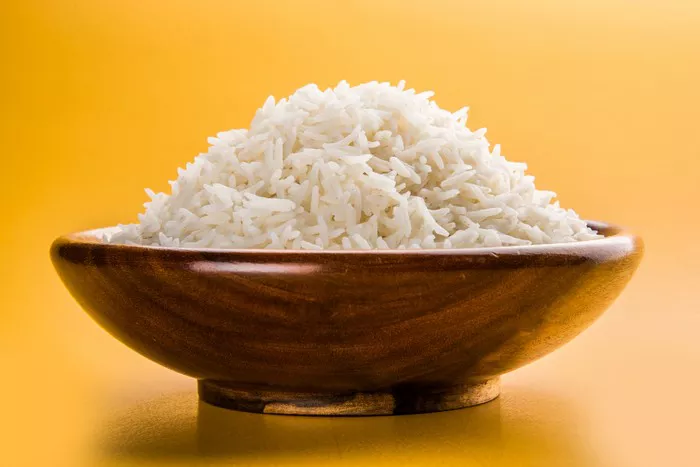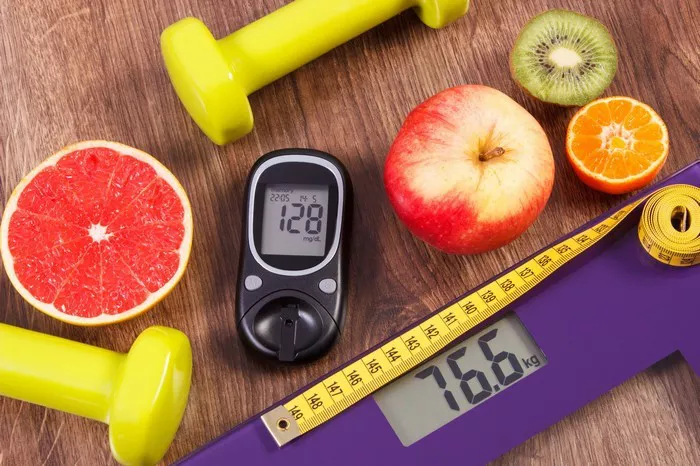Rice, a staple food in many cultures, has long been a subject of scrutiny for individuals managing diabetes due to its carbohydrate content and potential impact on blood sugar levels. However, when prepared thoughtfully, boiled rice can be a valuable addition to a diabetes-friendly diet.
In this comprehensive guide, we explore the nutritional properties of boiled rice, its effects on blood glucose control, and practical tips for incorporating it into a balanced meal plan.
The Glycemic Response of Boiled Rice
The glycemic index (GI) is a measure of how quickly carbohydrates in food raise blood glucose levels. Foods with a high GI, such as white bread and sugary snacks, are rapidly digested and absorbed, leading to sharp spikes in blood sugar levels. On the other hand, foods with a low to moderate GI, like boiled rice, are digested more slowly, resulting in a gradual and sustained release of glucose into the bloodstream.
Boiled rice, especially varieties like Basmati rice and long-grain white rice, typically have a moderate to low GI, making them suitable options for individuals with diabetes. The cooking method and degree of processing can also influence the GI of rice, with longer cooking times and minimal processing resulting in lower GI values.
Nutritional Composition of Boiled Rice
Boiled rice is a rich source of complex carbohydrates, providing a steady source of energy without causing rapid spikes in blood sugar levels. Additionally, rice contains essential nutrients such as vitamins, minerals, and dietary fiber, which contribute to overall health and well-being.
One cup of cooked long-grain white rice (approximately 195 grams) provides:
- Calories: 205 kcal
- Carbohydrates: 45 grams
- Fiber: 0.6 grams
- Protein: 4.3 grams
- Fat: 0.4 grams
- Vitamin B6: 0.2 milligrams (11% DV)
- Folate: 71 micrograms (18% DV)
- Iron: 0.8 milligrams (5% DV)
- Magnesium: 19 milligrams (5% DV)
While rice is relatively low in fiber compared to other whole grains, opting for varieties like brown rice or wild rice can increase the fiber content and provide additional health benefits.
Impact on Blood Glucose Control
When consumed as part of a balanced meal, boiled rice can help stabilize blood sugar levels and prevent postprandial spikes. Pairing rice with lean protein sources, healthy fats, and plenty of non-starchy vegetables can further mitigate its glycemic impact and promote satiety.
Additionally, the resistant starch content of rice, particularly when cooled after cooking, contributes to improved glycemic control and insulin sensitivity. Resistant starch acts as a prebiotic, nourishing beneficial gut bacteria and promoting the production of short-chain fatty acids, which have been linked to various metabolic benefits.
Practical Tips for Incorporation
When incorporating boiled rice into your diabetes meal plan, consider the following tips:
1. Choose Whole Grain Varieties:
Opt for brown rice, wild rice, or other whole grain varieties, which contain more fiber and nutrients compared to refined white rice.
2. Watch Portion Sizes:
Be mindful of portion sizes and aim to fill half of your plate with non-starchy vegetables, one-quarter with boiled rice or another whole grain, and one-quarter with lean protein.
3. Experiment with Cooking Methods:
Explore different cooking methods such as steaming, boiling, or using a rice cooker to find the texture and flavor that you prefer.
4. Pair with Protein and Healthy Fats:
Balance your meal by pairing boiled rice with sources of lean protein such as grilled chicken, fish, tofu, or legumes, and incorporate healthy fats from sources like avocado, nuts, or olive oil.
Conclusion
In conclusion, boiled rice can be a valuable component of a diabetes-friendly diet when prepared and consumed mindfully. Its moderate to low glycemic index, combined with its nutrient-rich profile, makes it a versatile and satisfying option for individuals seeking to manage their blood sugar levels effectively. By incorporating boiled rice into balanced meals and pairing it with protein, vegetables, and healthy fats, individuals with diabetes can enjoy its culinary versatility while supporting their overall health and well-being. As always, consult with a healthcare professional or registered dietitian for personalized dietary recommendations tailored to your individual needs and preferences.

























